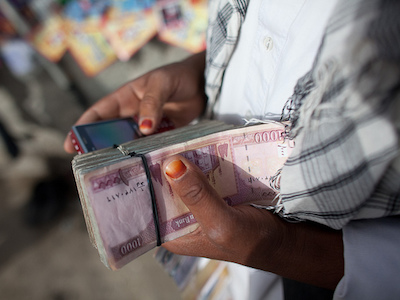The Christian Socialist Union (CSU), the leading party in Bavaria, Germany, is going to issue a document titled “Effective struggle with terrorism”, in which restrictions concerning bitcoin will be demanded.
This document will be officially passed at a party meeting that will take place on 6 January in former resort Wildbad Kreuth, South Bavaria, writes Die Welt.
The document is largely devoted to social networks such as Facebook and Twitter. CSU demands certain regulative steps regarding these networks. According to the authors of the document, Facebook and Twitter can easily become platforms for violence and terrorism propaganda. The party claims that the current Facebook rules, which allow banning certain network posts after a user’s complaint, aren’t enough for a proper anti-terrorist campaign. Instead, preventive action is suggested when certain filters are created that ban posts with extremist content on the stage of publication.
Among other measures aimed at a more decisive fight with terrorism, CSU suggests certain steps supposed to hinder terrorists financially. For example, using prepaid credit cards shouldn’t be anonymous any more.
The document also claims that international legal basis should be created for bitcoin. Bitcoin isn’t controlled, says CSU, so it poses potential threat as a means of supporting terrorism. “Not only can bitcoin be transferred without leaving any trace, but it can also be exchanged for euros or dollars without any problem,” reports Die Welt the concerns of the party. Still, no concrete actions have been proposed by the authors of the document.
The Christian Socialist Union is a Christian democratic and conservative political party operating only in Bavaria. The party was holding political leadership in the region for decades, the CSU leader traditionally occupying the position of Minister-President. At the same time, the party is represented on the federal level, being the minor partner in the powerful block with the all-Germany Christian Democratic Union in the Bundestag.
Claims that bitcoin could be a means for financing terrorism became frequent after the terrorist attacks on 13 November 2015 in Paris. Later in November the G7 finance ministers held a meeting to discuss possible restrictive measures concerning bitcoin, but no legislative changes have been made since then.
Andrew Levich

















